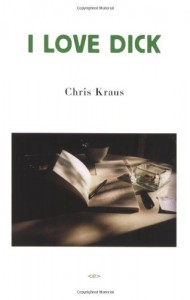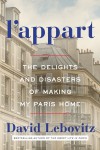19
Followers
19
Following
M Sarki
Besides being a poet with four collections published, M Sarki is a painter, film maker, and photographer. He likes fine coffee and long walks.
M Sarki has written, directed, and produced six short films titled Gnoman's Bois de Rose, Biscuits and Striola , The Tools of Migrant Hunters, My Father's Kitchen, GL, and Cropped Out 2010. More details to follow. Also the author of the feature film screenplay, Alphonso Bow.
Currently reading
L'Appart: The Delights and Disasters of Making My Paris Home
We Learn Nothing: Essays
Elmet: LONGLISTED FOR THE MAN BOOKER PRIZE 2017
Limbo, and Other Places I Have Lived: Short Stories
The Double Life of Liliane
At Home with the Armadillo
American Witness: The Art and Life of Robert Frank
Autumn
Inside Out: A Personal History of Pink Floyd (Reading Edition)
American Witness: The Art and Life of Robert Frank
I Love Dick
 http://msarki.tumblr.com/post/144548665038/i-love-dick-by-chris-kraus
http://msarki.tumblr.com/post/144548665038/i-love-dick-by-chris-krausArt is the consequence of that excess, that energy or force, that puts life at risk for the sake of intensification, for the sake of sensation itself—not simply for pleasure or for sexuality, as psychoanalysis suggests—but for what can be magnified, intensified, for what is more, through which creation, risk, innovation are undertaken for their own sake, for how and what they may intensify.___Elizabeth Grosz, Chaos, Territory, Art: Deleuze and the Framing of the Earth (New York: Columbia University Press, 2008)
Understandably, in the novel [b:I Love Dick|243991|I Love Dick|Chris Kraus|https://d.gr-assets.com/books/1289697846s/243991.jpg|912458] by [a:Chris Kraus|142778|Chris Kraus|https://d.gr-assets.com/authors/1359241611p2/142778.jpg], it seems boredom is the original driving force behind the adulterous fantasy being planned and played out between a married couple. The aging Sylvère is quite a bit older than his wife and for years now their sex life has taken a back seat to their work in academics, film, and the theater. Because of the husband’s disinterest in having sex the couple willingly decides to begin plotting a possible ménage à trois. Due to a fortuitous get-together with an associate of the husband’s, a collaboration of seduction with the likely candidate Dick evolves within the couple’s relationship that in time unwittingly enables a rekindling of sexual interest in each other. When they themselves are not having sex the couple spends their time together fervently composing letters and making phone calls to their subject Dick in order to seduce him. This titillating process ignites a new and robust sex life that for years has been absent in their relationship.
… But Dick , I know that as you read this, you’ll know these things are true. You understand the game is real, or even better than, reality, and better than is what it’s all about. What sex is better than drugs, what art is better than sex? Better than means stepping out into complete intensity…
The novel I Love Dick proceeds in corresponding fashion, and through the journaled days their life is examined and digressions made into all facets of their relationship together, always keeping Dick their focus and the prize. A frenzy of activity follows for three days until life’s demands and prior commitments portends an unfavorable result and a lessening of expectations. Regardless, the collaborative seduction continues as a private exercise between the couple and a way for them to remain interested in their sexual life together. But as everything else, that exercise as well runs its course and Chris is left to continue her crush and game by herself.
…Art supersedes what’s personal.
My favorite epistolary novel is [b:Epigraph|526545|Epigraph|Gordon Lish|https://d.gr-assets.com/books/1175543532s/526545.jpg|514352] by [a:Gordon Lish|232097|Gordon Lish|https://d.gr-assets.com/authors/1267719924p2/232097.jpg] which surprisingly fails to show up in the Wikipedia List of contemporary epistolary novels. I Love Dick doesn’t either, but Kraus mentions Habermas, or perhaps Lukács first, as saying the epistolary genre marked the advent of the bourgeois novel. Epistolary fiction dates back at least to ancient Roman times, but it is said the epistolary novel as a distinct genre first gained prominence in Britain in the mid-eighteenth century. Female characters in these novels often wrestled with sexual temptation and moral propriety and found that the only way to express themselves honestly and thoroughly was by confiding in a trusted friend through letters. Chris Kraus, our main character in I Love Dick, writes Sylvère keeps socializing what I’m going through with you. Labeling it through other people’s eyes …This presumes that there’s something inherently grotesque, unspeakable, about femaleness, desire.
Desire plays the most important role. Whether it is its lack or an abundance makes little difference. In the case of Chris let’s say she holds her desire in spades. On the other hand, Sylvère needs an impetus in order to be sexually charged again, so he adds another man into the relationship offering up the possibility for intensity. Let’s face it, the idea of condoned and sanctioned adultery is generally exciting. And the fact that these two male associates would be sharing the same woman offered a binding love between these two fellows that might enhance their homosocial relationship. The question I have centers on whether or not Sylvère had his wife’s best interests in mind, or if his own boredom was directing the action of his fantasy? The initial flirtation occurring between Dick and Chris at dinner was brought up over breakfast the next morning by Chris in order for examination and the search for truth. Because this decade-old couple was no longer having sex with each other they nurtured and kept vital their relationship by telling each other everything, much in the vein of Jean-Paul Sartre and Simone de Beauvoir. Chris informs Sylvère of the previous night’s flirtation with Dick as amounting to what she termed a “Conceptual Fuck”. The seductive dance that follows, though eventually collaborative, is initiated by Sylvère. And after 180 pages into their undelivered billets-doux to Dick the couple decides instead they are making art. The altered plan then proceeds with the promise to eventually present their growing number of letters as a performance piece instead. But unfortunately I Love Dick finds itself expanding into an unfeeling academic treatise involving essays that have nothing to do with Dick, but instead demonstrate to the reader how well-informed and intellectual all these special people are, as well as a platform for Kraus and her axe to grind.
… Love and sex both cause mutation, just as I think desire isn’t lack, it’s surplus energy — a claustrophobia inside your skin —
After finally spending four rapturous days and nights at the home of Dick, Chris is spurned by her lover with words to the effect of “What did you expect?” And following this devastatingly long weekend, after confiding to Sylvère of her heartbreak and disappointment, his response is similar to she says a “cut-rate therapist” who counsels, “You’ll never learn…You keep looking for rejection! It’s the same problem that you’ve always had with men.”
… Even though Dick’s rejected her, she’s managed to cover all the bases: She doesn’t need him to respond for her love to go on. She can maintain a relationship with me (Sylvère), draw inspiration from Dick for her work, and even put her film into a vault without using it even further…
In the second half of I Love Dick the Us vs. Them battle ripens. Why is it that for some feminists it has to always be about women against men? I think it sounds petty to read Kraus complain that …while these men were getting famous…me and all my friends, the girls, were paying for our rent and shows and exploring “issues of our sexuality” by shaking to them all night long in topless bars. …Why is it men become essentialists, especially in middle age?
From the beginning of time those who considered themselves intellectuals, and members of an elitist group, generally consisted of men. For some radicalized feminists, those organizations have always been unacceptable. But a woman who also wants to be an accepted part of that awful crowd says more to me than her exclusion from it. Our greatest thinkers and writers of this, or any time, generally avoid being associated with any group, and if a truly great mind finds itself a member of some elitist social group he, or she, tends to eventually escape from it and typically stands alone on a unique difference. A genius speaks for itself, and no exclusionary club is ever promoted on its behalf. It is ludicrous to think that because these stereotypical male intellectuals fiercely protect their sacred clubs and bloated importance, female thinkers of the same ilk form their own groups seemingly in order to do battle with them. And each club’s goal seems always to be the most impressive, and the louder their expression the greater their blinking lights shine. The fact that both groups remain exclusionary and protectively elite says more than the complaint raised over sexism. Both are silly, and at fault, in their incessantly foolish chatter. As well as women, countless men too have been excluded from these male intellectual bodies. Why would anyone want to be a member of one of these exclusionary fraternities or sororities anyway?
Genuine thinking is a violent confrontation with reality, an involuntary rupture of established categories.
Chris Kraus has written a most impressive book. The potential for discovery was exciting. But for me she failed in her sidebar attempt to garner a somewhat bitter acknowledgment of her own importance. Nonetheless, she is a writer worth reading.







